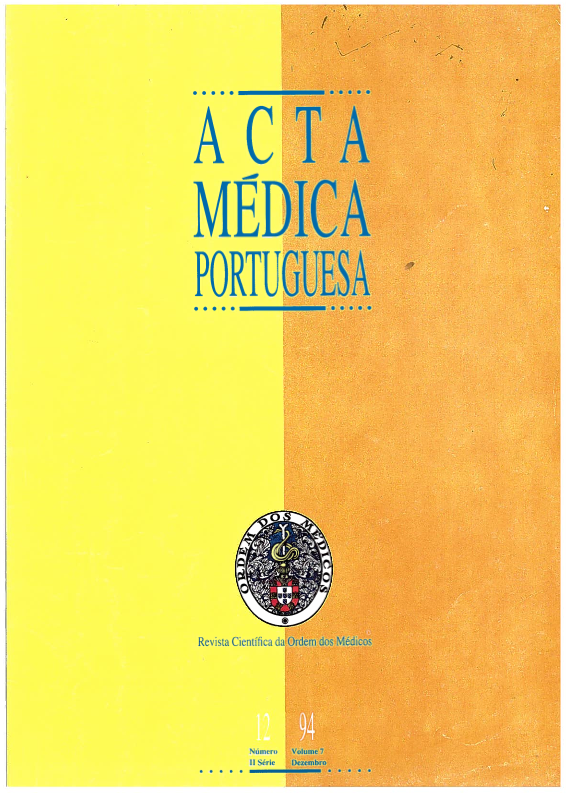Treatment of acute promyelocytic leukemia with trans-retinoic acid. Experience of the Santa Maria Hospital, Medical School of Lisbon.
DOI:
https://doi.org/10.20344/amp.3014Abstract
Acute promyelocytic leukemia (APL) is a rare subtype of acute myelogenous leukemia that is usually associated with a fatal hemorrhagic diathesis. All trans-retinoic acid (ATRA) is an active metabolite of vitamin A that differentiates the malignant cell clone, corrects the coagulopathy, and induces complete remission in the vast majority of patients with APL. Between June 1992 and September 1993, 8 patients with APL (4 previously untreated, 3 in first relapse and 1 in second relapse) received ATRA. Complete remission was achieved in 7 patients; in 5 with ATRA alone and in 2 with ATRA followed by cytotoxic chemotherapy due to the development of asymptomatic hyperleukocytosis. The earliest signs of response were the correction of the coagulopathy and an increase in the white blood cell count. Sequential morphological and immunophenotypical analyses of the bone marrow revealed differentiation of the malignant cell clone, in the absence of bone marrow hypoplasia. 4 of 5 patients treated only with ATRA until complete remission had late leukopenia. The most frequent adverse effects were dryness of skin and mucosae, hypertrigliceridemia and hypercholesterolemia, and a moderate increase in liver transaminases. An increase in the white blood cell count was common, and in two cases exceeded 35.0 x 10(9)/l. One of these patients developed multiple thrombosis of the extremities after cytotoxic chemotherapy. We frequently observed an increase in lactic dehydrogenase levels that was concomitant with the peak in the white blood cell count. The only patient on whom complete remission was not achieved was 60 years old, had chronic obstructive pulmonary disease, and died in the third week of therapy with a pulmonary distress syndrome.(ABSTRACT TRUNCATED AT 250 WORDS)Downloads
Downloads
How to Cite
Issue
Section
License
All the articles published in the AMP are open access and comply with the requirements of funding agencies or academic institutions. The AMP is governed by the terms of the Creative Commons ‘Attribution – Non-Commercial Use - (CC-BY-NC)’ license, regarding the use by third parties.
It is the author’s responsibility to obtain approval for the reproduction of figures, tables, etc. from other publications.
Upon acceptance of an article for publication, the authors will be asked to complete the ICMJE “Copyright Liability and Copyright Sharing Statement “(http://www.actamedicaportuguesa.com/info/AMP-NormasPublicacao.pdf) and the “Declaration of Potential Conflicts of Interest” (http:// www.icmje.org/conflicts-of-interest). An e-mail will be sent to the corresponding author to acknowledge receipt of the manuscript.
After publication, the authors are authorised to make their articles available in repositories of their institutions of origin, as long as they always mention where they were published and according to the Creative Commons license.









